The fleet industry has welcomed the continuing freeze in fuel duty after the Chancellor George Osborne cancelled the inflationary rise due next month.
The surprise move means that the main rate of fuel duty will remain at 57.95 pence per litre for 2016-17.
Pump prices are now 18 pence per litre lower than they would have been if the Government had maintained pre-2010 fuel duty escalator plans.
Osborne said: “In the last twelve months, petrol prices have plummeted. That is why we pencilled in an inflation rise. But I know that fuel costs still make up a significant part of household budgets and weigh heavily on small firms.
“Families paid the cost when oil prices rocketed; they shouldn’t be penalised when oil prices fall. So I can announce that fuel duty will be frozen for the sixth year in a row. That’s a saving of £75 a year to the average driver; £270 a year to a small business with a van. It’s the tax boost that keeps Britain on the move.”
Ashley Barnett, principal consultant at Lex Autolease, said the chancellor’s decision to freeze fuel duty has clear benefits for British businesses as many continue to feel the positive impact of lower costs at the pump.
“The falling cost of fuel had prompted speculation about an imminent rise in duty, but businesses can breathe a sigh of relief, for now at least,” said Barnett.
“The ongoing freeze is particularly helpful in alleviating concerns that the downward trend in fuel prices could easily be reversed should oil prices recover and the pound’s depreciation continue.”
LeasePlan UK's managing director, Matt Dyer, added: "Not only will this help UK motorists, it will also be a continued reprieve to those who work in logistics, with light commercial vehicles expected to save an estimated £270 per year.”
However, the Freight Transport Association (FTA) said that Osborne had missed the opportunity to boost economy by introducing a reduction in fuel duty by 3 pence per litre.
In its pre-Budget submission, FTA told the chancellor that a reduction would make an important contribution towards protecting the UK economy.
James Hookham, FTA managing director of policy and communications, said: “A further freeze of duties is welcome but the chancellor missed a chance to give a boost to the stuttering economy by reducing the tax on an essential business input.”
FTA figures estimate that every penny of fuel duty costs commercial vehicle operators £120 million a year, and a 3ppl cut would have saved around £350 million a year for an industry that all British businesses rely upon.
Industry currently pays around £7 billion annually in duty and an increase of just one penny would add £470 a year to the cost of running a 44-tonne truck, which would have a huge impact on transport operators, says the FTA.
The RAC would have liked the chancellor to have made the freeze in fuel duty for the lifetime of this Parliament. RAC chief engineer David Bizley said: “With the Government’s own evidence showing that lower fuel prices are good for the economy, we are disappointed Mr Osborne didn’t make a longer-term commitment to freeze duty beyond next year’s Budget.”
Company car tax and allowances
The Budget also announced measures to support transition in the UK to cleaner zero and ultra-low emission vehicles (ULEVs).
The chancellor will extend the 100% First Year Allowance (FYA) for businesses purchasing low emission cars for a further three years to April, 2021.
However, the main rate threshold for capital allowances for business cars will be reduced from 130g/km to 110 g/km of CO2 and the FYA threshold from 75g/km to 50g/km of CO2 from April 2018, to reflect falling vehicle emissions.
The chancellor also said that he would continue to base Company Car Tax on CO2 emissions of cars, and consult on reforming the lower CO2 bands for ultra-low emission vehicles to refocus incentives on the cleanest cars beyond 2020-21.
Travel and subsistence
Elsewhere in the Budget, there was an announcement around travel and subsistence. In September, 2015, the Government published a discussion document aimed at modernising the tax rules for travel and subsistence.
After analysing responses, it has concluded that, although complex in parts, the current rules are generally well understood and work effectively for the majority of employees and has decided not to make further changes to the at this time.
Severn toll
To reduce costs for businesses in Wales and the South West of England the Government also announced it will halve tolls on the Severn River Crossings, once the crossings are in public ownership, subject to public consultation. Alongside this, it will review the case for free-flow tolling on the crossings similar to the Dartford Crossing.
Driverless cars
The Government has also reiterated its commitment to the development of driverless cars. It said it will: conduct trials of driverless cars on the strategic road network by 2017; consult this summer on sweeping away regulatory barriers within this Parliament to enable autonomous vehicles on England’s major roads; and establish a £15 million ‘connected corridor’ from London to Dover to enable vehicles to communicate wirelessly with infrastructure and potentially other vehicles.
In addition, it said it will carry out trials of truck platooning on the strategic road network and start trials of comparative fuel price signs on the M5 between Bristol and Exeter by spring 2016 to drive fuel price competition and help motorists save money.
Salary sacrifice
Finally, the Government remains concerned about the growth of salary sacrifice schemes, with clearance requests for salary sacrifice arrangements from employers to HMRC having increased by more than 30% since 2010.
The Government says it is therefore considering limiting the range of benefits that attract income tax and NICs advantages when they are provided as part of salary sacrifice schemes.
However, it said its intention is that pension saving, childcare and health-related benefits such as Cycle to Work should continue to benefit from income tax and NICs relief when provided through salary sacrifice arrangements. No mention was made of salary sacrifice for cars.
Barnett said: "Salary sacrifice car schemes can form an integral part of a business’s employee benefits package and can work wonders for talent attraction and retention levels.
"It would be helpful to see clarity from the Government - both about the timeframes involved and the specific schemes allowed. We would like the Government to provide clear guidelines which will enable businesses to plan for any changes they may need to implement."








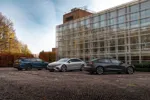

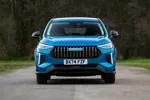

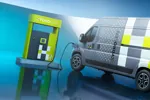




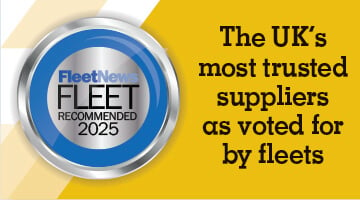
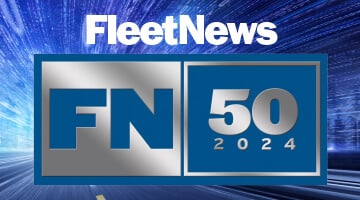
Chris Kisby - 17/03/2016 11:02
As an automotive retail SME i am deligted that the chancellor has Held fuel duty , good for my fleet and customers . The précis of the tax budget changes are laid out easily for reference . Yours Chris